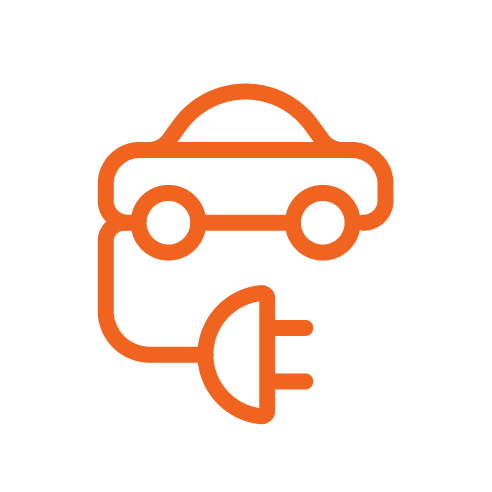Range is one of the first questions that arises when considering an electric car: how many kilometers can I travel on a single charge? The answer is not unique, as it depends on multiple factors beyond the battery.
What is the autonomy of an electric car?
The range is the distance an electric car can travel from the time its battery is fully charged until it runs out. It is measured in kilometers and can vary greatly depending on the conditions of use, even in the same vehicle.
Main factors affecting the actual range of a car
Battery capacity
The battery is the heart of the electric car. The greater its capacity – measured in kilowatt hours (kWh) – the more energy it can store and, therefore, the greater the range.
- large batteries: they offer more autonomy, but also increase the weight and cost of the vehicle.
- small batteries: they are usually found in urban or compact models, designed for short trips.
Vehicle energy efficiency
Not all electric cars consume the same amount of energy per kilometer. Efficiency depends on vehicle design, weight, aerodynamics and electrical system management.
- average consumption: expressed in kWh/100 km or km/kWh.
- energy recovery: many electric vehicles regenerate energy during braking, which helps extend range.
Driving conditions
The way you drive directly influences autonomy. Some examples:
- constant and moderate speed: maximizes performance.
- sudden accelerations and hard braking: increase fuel consumption.
- urban driving: favors regeneration but may be affected if there are many traffic lights and traffic.
- roads or highways: consumption stabilizes, but at high speeds it increases noticeably.
Ambient temperature
Climate also plays an important role:
- extreme cold: reduces battery efficiency and requires more energy for heating.
- intense heat: it can activate cooling systems that also consume battery power.
- optimum temperature: between 15 °C and 25 °C, where the batteries work most efficiently.
Charging and type of charger
Although it does not directly modify range, the way you charge your car can affect its long-term performance.
- slow home charging: ideal for preserving battery health.
- fast charging: useful for long trips, but continuous use may degrade the battery faster.
- recommended charging rate: keep the battery between 20 % and 80 % to prolong its life.

Do you need a recharging point at home or in your company?
We install electric vehicle chargers adapted to your needs. Fast, safe and with personalized advice.
Differences between theoretical and actual autonomy
Many drivers are surprised to find that the actual range is often less than the figure given in the catalog. This is because the theoretical values are based on homologation cycles such as WLTP (Worldwide Harmonised Light Vehicles Test Procedure), which simulate standard driving but do not reflect all real situations.
Tips for improving the miles you can drive with an electric car
- Drive smoothly and steadily.
- Take advantage of energy regeneration.
- Maintain proper tire pressure.
- Avoid carrying unnecessary items.
- Plan your routes to avoid traffic jams or steep slopes.
